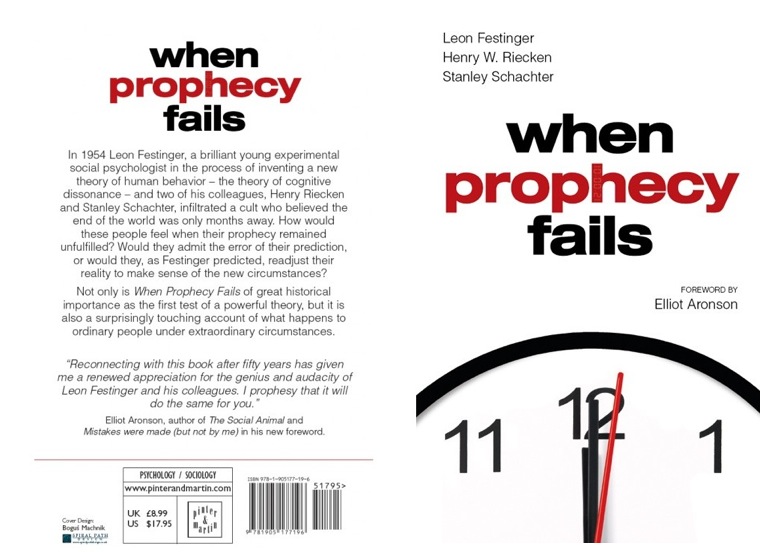An iconographic and text archive related to communication, technology and art.
If six o’clock rolls around and there are no major earthquakes, are you going to start to get worried?
It’s going to happen. It’s going to happen. I don’t even think about those kind of issues. The Bible is not ― God is not playing games. I don’t even want to think about that question at all. It is going to happen
☛ The New York Magazine / The Daily Intel: “A Conversation With Harold Camping, Prophesier of Judgment Day” by Dan Amira, May 11, 2011
From The Telegraph:
Inhabitants of New Zealand, scheduled to be among the first to meet the apocalypse according to a US fundamentalist preacher, this morning confirmed they were still in existence as the appointed time was reached in their time zone. […] This morning, Kiwis confirmed there were no signs of the dead rising from the grave, nor of the living ascending into the clouds to meet Jesus Christ. (“Apocalypse not right now: ‘Rapture’ end of world fails to materialise” by Bonnie Malkin and David Barrett, May 21st, 2011)
One of the interesting aspect of this story has to do with the ways believers will (surely) explain the failed prophecy. What kind of seemingly logical explanations will they come up with?
In 1956 social psychologist Leon Festinger wrote a book precisely about that phenomenon and came up with the theory of “cognitive dissonance”:
Festinger is perhaps best known for the Theory of Cognitive Dissonance, which suggests that inconsistency among beliefs and behaviors will cause an uncomfortable psychological tension. This will lead people to change their beliefs to fit their actual behavior, rather than the other way around, as popular wisdom may suggest. (Wikipedia: “Leon Festinger”)
Here’s more detailed summary of his investigation:
In the classic study When Prophecy Fails, Leon Festinger, Henry W. Ricken, and Stanley Schachter offer us an account of one very small occult group, dubbed the Seekers, whose leader, Mrs. Marion Keech, predicted the destruction of much of the United States by a great flood. Her loyal followers were to be rescued from this apocalypse by aliens aboard flying saucers who were communicating with her by telepathy. Several dates for the end of the world were foretold by Mrs. Keech, but each passed uneventfully. Contrary to common sense, though, the group did not abandon its beliefs and disband even in the face of stark disconfirmation of these prophecies. Rather, a faithful core persisted and redoubled its efforts to convince others of the veracity of their ideas. From the study of this one group, Festinger and his colleagues developed the theory of cognitive dissonance: when people with strongly held beliefs are confronted by evidence clrearly at odds with their beliefs, they will seek to resolve the discomfort caused by the discrepancy by convincing others to support their views rather than abandoning their commitments. They will seek some means of reestablishing cognitive consonance without sacrificing their religious convictions.
This quote comes from an article by Lorne L. Dawson offering “a systematic overview” of variations and commonalities between similar studies about “how religious groups respond to the failure of their prophetic pronouncements”. See “When Prophecy Fails and Faith Persists: A Theoretical Overview” (published in Nova Religio: The Journal of Alternative and Emergent Religions, Vol. 3, No. 1, October 1999, pp. 60-61). Dawson’s overview supports this conclusion:
The results of these studies are mixed, but on the whole the record shows that Festinger et al. were right to predict that many groups will survive the failure of prophecy. Why they survive is another matter. The reasons are much more complicated than When Prophecy Fails implies. (p. 61)
For more about this theory and today failed prophecy, see the following resources:
- When Prophecy Fails by Leon Festinger, Henry Riecken and Stanley Schachter, Harper-Torchbooks publishers, 1956. Amazon.com (Look Inside feature enabled), Wikipedia, Pinter & Martin (publishers of the 2008 edition)

- The New York Times: “Make My Bed? But You Say the World’s Ending” by Ashley Parker, May 19, 2011.

- The Wikipedia article for the concept of “rapture” in Christian eschatology.

[UPDATE – May 25th, 2011] Harold Camping came up with an explanation (sort of):
- The New York Times: “An Autumn Date for the Apocalypse” by Jesse McKinley, May 24th, 2011. Excerpt:
What he decided, apparently, was that May 21 had been “an invisible judgment day,” of the spiritual variety, rather than his original vision of earthquakes and other disasters leading to five months of hell on earth, culminating in a spectacular doomsday on Oct. 21 — something he had repeatedly guaranteed.
- The Associated Press (via Yahoo! News): “Preacher says world will actually end in October” by Garance Burke, May 24th, 2011.
[UPDATE – May 27, 2012] Religion Dispatches: “A Year After the Non-Apocalypse: Where Are They Now?” by Tom Barlett, May 18, 2012.
A reporter tracks down the remnants of Harold Camping’s apocalyptic movement and finds out you don’t have to be crazy to believe something nuts.
- By Philippe Theophanidis
- on
- ― Published in Communication
- Tagged: beliefs, cognitive bias, cognitive dissonance, end, epistemology, Judgment Day, knowledge, prophecy, Rapture, religion
